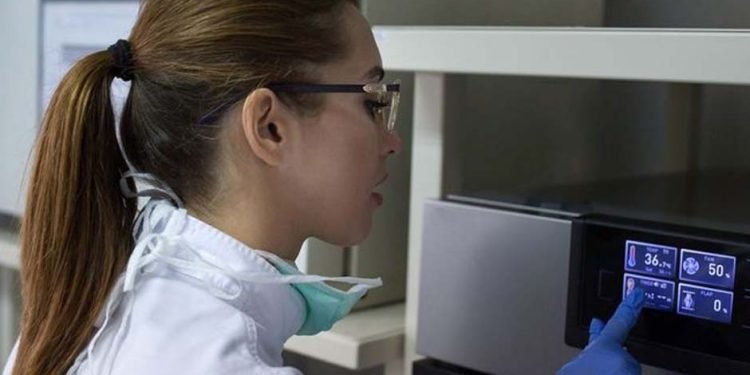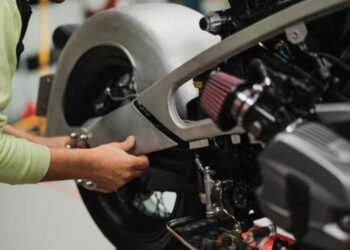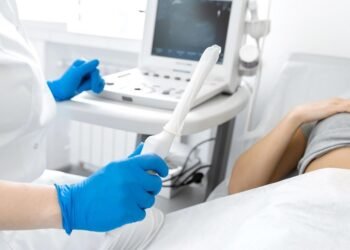From aiding in hatching chicken eggs to enabling scientists to study the development of vaccines for deadly viruses, incubators play an integral role in many labs. They allow cell and microbial cultures to grow under stipulated working conditions such as temperature, humidity, and pH. Incubators feature controls that support a range of applications, including UV sanitization and high-heat decontamination. They also come with different sizing options to suit your workspace needs.
What is an Incubator?
The incubator has been vital in scientific advancements and experimental work, from hatching chicken eggs to developing vaccines for deadly viruses. Incubators create a controlled environment with optimal temperature, humidity, and gas composition for cell cultures, microbiological culture growth, and genetic research. A refrigerated incubator (chilled incubator) provides a constant cold temperature to promote or prevent the development of cells and samples. These incubators typically have a heavy-duty refrigeration system to produce stable temperatures, programmable controllers and alarms, and an insulated cabinet. Many incubators have a specific industry focus and require tenants to commit to one to two years.
Refrigerated Incubator
Refrigerated incubators provide a cold environment to promote or prevent cell growth. They feature heavy-duty refrigeration systems to produce stable temperatures, programmable microprocessor controllers, and audible alarms. They are often used for BOD determinations, bacterial culturing, and water pollution testing. Refrigerated incubators utilize thermoelectric cooling technology to eliminate the need for a compressor. Your lab can save energy and reduce ambient temperature and air conditioning loads. This incubator also features a weekly program timer and digital temperature regulation. It’s an excellent choice for laboratories that require the flexibility to increase or decrease the amount of processing space every month.
Microbiological Incubator
A science incubator is a standard laboratory instrument that provides optimal conditions for growing bacterial cultures. These units are designed for sample safety, making them ideal for pharmaceutical, medical, food, and research laboratories. They feature natural convection design to minimize the disturbance of microbial cultures. Their small footprint makes it easy to fit in limited workspaces. Besides regulating temperature, these units also hold humidity and gas composition inside the chamber. They are often used to incubate Petri dish cultures that require a specific concentration of CO2 and a certain level of humidity. They can be found in a variety of sizes.
Microbiological Incubator with Decontamination Technology
Contamination in cell culture incubators is a significant concern that can cause discarded cultures, disrupted experiments, and costly delays. While avoiding contamination with best practices can help, specialized decontamination technologies are available to keep unwanted microorganisms from entering incubators in the first place. Many direct-heat incubators offer a high-temperature sterilization cycle that removes all contaminants from the interior of the chamber, leaving it cool and dry at the end of a complete process. Other incubators have water jackets that create a thermal buffer that can protect cultures from power fluctuations. Some incubators use a UV lamp to sterilize moving air and the humidity pan water surface without touching your cell culture. This reduces contamination risks and increases usability, safety, and maintenance efficiency.
Microbiological Incubator with Sterilization Technology
Incubators that use sterilization technology offer several ways to reduce contamination in the chamber. UV sanitization uses germicidal UV light to denature a microorganism’s DNA when it absorbs the light. High-heat decontamination cycles utilize hot air to sterilize the incubator when samples are empty. Thermoelectric cooling offers low energy consumption and no harmful refrigerants. Other models have integrated sensors to sample the atmosphere for oxygen and carbon dioxide levels continuously. These da are especially useful for BOD testing, Drosophila cultivation, and extremophile bacteria cultures.
Microbiological Incubator with Self-Cleaning Technology
Many incubators have helpful options for keeping your cultures safe and secure, including password protection, temperature alarms, and USB connections. Some models also have auto-diagnostics that will alert you when something goes wrong with your system. Refrigerated Biochemical Oxygen Demand (BOD) incubators offer a low-temperature environment for various applications, including BOD determination, environmental research, plant and insect studies, fermentation tests, and bacterial culturing. These incubators feature microprocessor PID controls, a dual auto-defrosting system, and a precisely tuned and tested ventilation and insulation package. The easiest way to keep your laboratory incubator clean is by changing the water pan weekly! Always use pure water such as UV sterilized and 0.22uM filtered.












